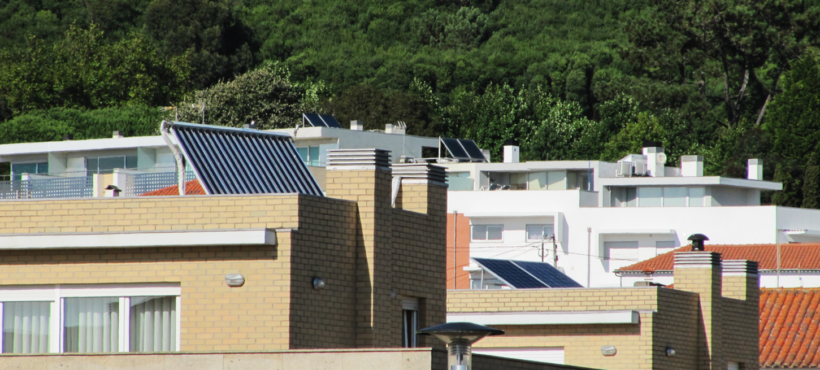Buildings are one of the largest sources of heat consumption in Europe. Therefore, addressing the decarbonisation of heat supply to buildings is essential, as well as boosting their energy efficiency, in order to cut emissions, tackle energy poverty, reduce people’s vulnerability to energy prices and support the economic recovery and job creation.
One of EU’s main instruments to reach such goals is the European Performance of Buildings Directive (EPBD). The EPBD aims to drive the renovation of the building stock of the European Union, giving special emphasis to the energy performance of buildings. The new proposal from the European Commission for the revision of the EPBD (published on 15th December 2021) places a special emphasis on renewable heating and cooling, and as such, is a high-priority topic for the solar thermal industry, as a more ambitious EPBD has the potential to accelerate the energy transition and spur sector growth.
Therefore, it is natural that it is closely connected to the Renovation Wave Strategy presented by the EC in October 2020. The Renovation Wave sets ambitious targets and measures aiming to double (at least) the annual energy renovation rate by 2030.
Being part of the Fit for 55 package, the EPBD is currently being revised. The main goal of the current revision is to upgrade the existing regulatory framework to reflect higher ambitions and more pressing needs in climate and social action while providing Member States with the flexibility needed to take into account the differences in the building stock across Europe.
In brief, the EPBD:
- asks EU Member States to devise long-term renovation strategies to decarbonize buildings;
- asks EU Member States to set minimum performance standards (MEPS), and issue certificates when a building is rented or sold;
- introduces measures aiming at the phase-out of fossil-fuel powered boilers, determining that these will not be eligible for public support as of 2027 and introducing a legal basis for national bans;
- promotes smart solutions in buildings such as temperature-control or air-quality systems.
As a result of REPowerEU, and the EU Solar Energy Strategy, the EPBD will also include the provisions related to the “European Solar Rooftop Initiative”.
One of the changes proposed to be included in the EPBD sets a mandate for buildings to include solar on the rooftops. It includes the reference for the mandates and the timings, and it clearly refers “solar technologies.”
Article 9a Solar energy in buildings
Member States shall ensure that all new buildings are designed to optimise their solar energy generation potential on the basis of the solar irradiance of the site, enabling the later cost-effective installation of solar technologies.
Member States shall ensure the deployment of suitable solar energy installations:
(a) by 31 December 2026, on all new public and commercial buildings with useful floor area larger than 250 square meters;
(b) by 31 December 2027, on all existing public and commercial buildings with useful floor area larger than 250 square meters; and
(c) by 31 December 2029, on all new residential buildings.
Member States shall define, and make publicly available, criteria at national level for the practical implementation of these obligations, and for possible exemptions for specific types of buildings, in accordance with the assessed technical and economic potential of the solar energy installations and the characteristics of the buildings covered by this obligation.
The EPBD is under discussion at the European Parliament and the European Council. Some of the main votes and debates will occur after the Summer break.
You should note that the EPBD is especially important for companies in the heating and cooling value chain as it encourages the replacement of H&C systems, sets performance requirements for new systems and, as such, can represent a growth opportunity for the sector but also a threat, notably if it promotes more specific solutions.
We shall continue to follow this topic, in particular, the Solar Rooftop Obligation and we shall keep our members updated on the main developments. Those interested can also find more information on the process at the European Parliament here.


Leave a Reply